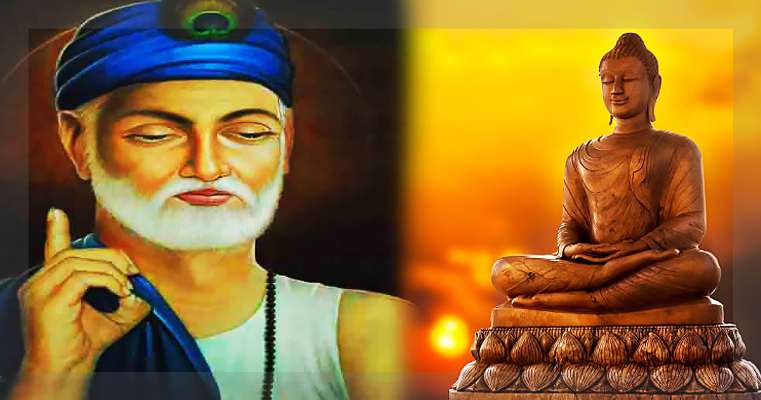
Doha: Saraha, Kabir, and Drukpa
Dohas were composed in Apbhransha language. While Sanskrit was considered to be god’s language, Prakit as people’s language, Apbhransha as the language of the outcasts, and Picchachi that of the demons, the Dohas are composed in the language of the outcaste.
The etymological meaning of the word Doha can be understood as Dva-ha, where Dva means two extremities that the Buddha taught not to practice or follow. The duality of eternalism and nihilism, the duality of sensual pleasures and asceticism, the duality of the subject and object. Dva-ha is, therefore, the middle path and can also mean laughing at duality.
The Dohas were first composed by Saraha who apparently came from Vidarbha: sometimes he is called Mahabrahman or the outcaste. His social origin is therefore ambiguous. While Kabir came from the Julaha caste and Drukpa came from the traditional Tibetan Buddhist background.
The awakened experience that three of them taught is called Sahaja. The path is often called sahajayana. It is the natural state of existence also called spontaneous arising. We will not go into the technicalities of it.
We will discuss the power of Buddhism to change the status quo or bring great change in society. The society has a tendency to become patterned and structured and fossilised, and the individuals born into such societies become patterned, structured and fossilised. The individuals became a slave to social patterns, structures, and old norms.
That is the reason why the individuals who see differently the way it is, disrupts the patterns, structures, and old structures. They use a new language, new signs, new symbolism to challenge the status quo.
This way of expression or communication was called Doha.
Doha is, therefore, a new language. This is what Saraha, Kabir, and Drukpa did to break the existing patterns and old norms and challenge the society in which they lived to be new.
Author – Mangesh Dahiwale, Human Rights Activist


+ There are no comments
Add yours